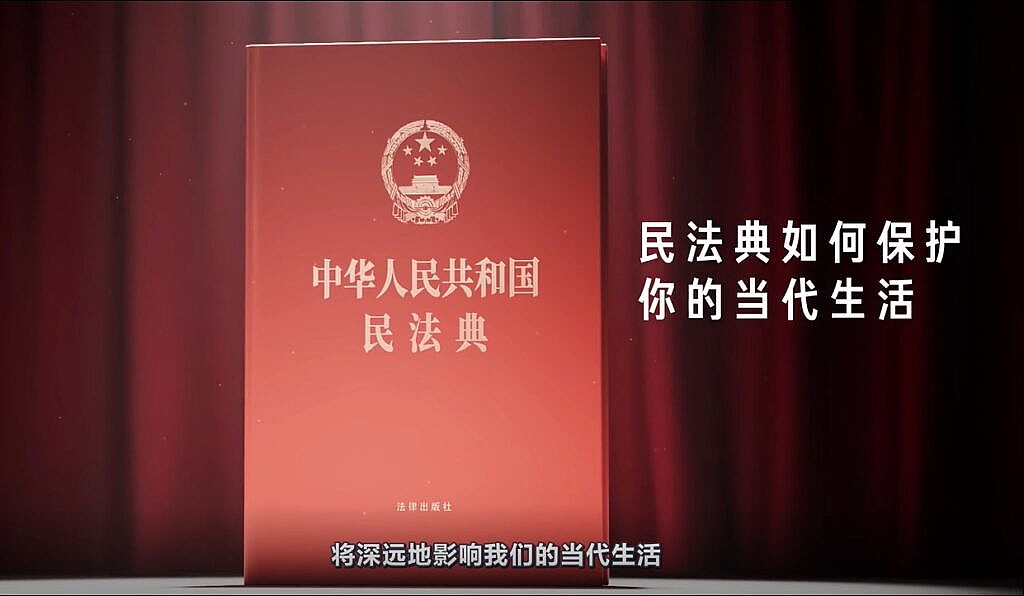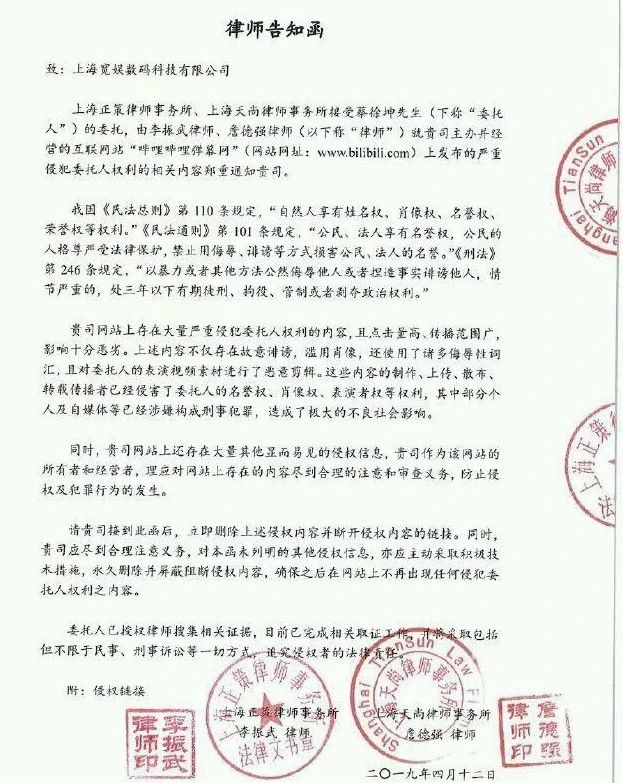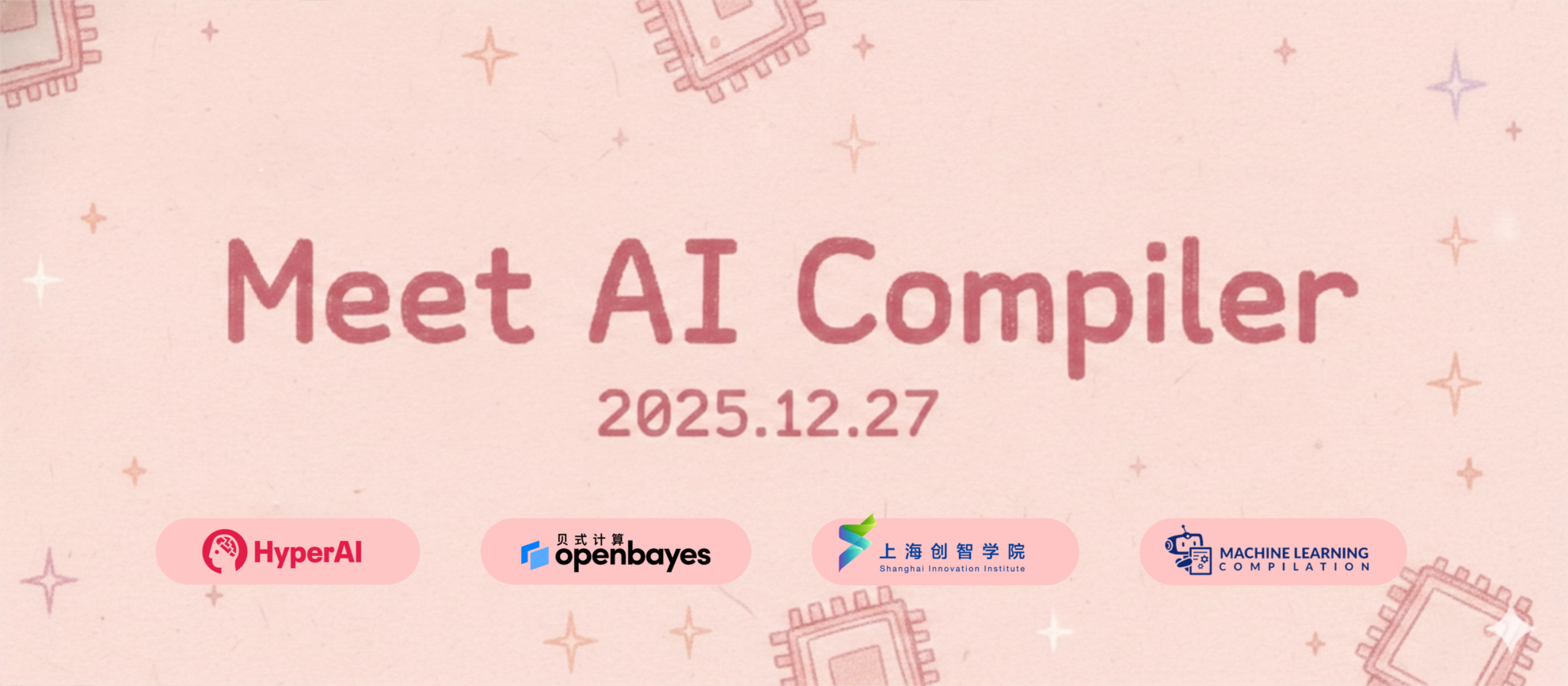Command Palette
Search for a command to run...
AI Face-changing, Voice Tampering, etc. Are Clearly Written Into the New Version of the Civil Code

The fourth chapter on portrait rights in the fourth part of personal rights in the Civil Code of the People's Republic of China, which was just voted and passed at the recent two sessions, clearly proposes the identification of infringements of others' portraits, voices and other rights by means of information technology.
On May 28, the Third Session of the 13th National People's Congress voted to pass the Civil Code of the People's Republic of China (hereinafter referred to as the "Civil Code").
The Civil Code (Draft) consists of 7 chapters, namely General Principles, Property Rights, Contracts, Personal Rights, Marriage and Family, Inheritance, Tort Liability, and Supplementary Provisions.
This law will come into effect on January 1, 2021.
Clearly written into the bill: Technical means infringe the right of portrait
There are many provisions in the bill that are closely related to the Internet industry. In this article, we mainly focus on: Chapter 4 of Part 4 Personal Rights - Right of Portrait.

Article 1019 [Negative power of portrait rights] No organization or individual may vilify, deface, Or using information technology to forge or infringe upon others' portrait rights.No one may produce, use, or disclose the portrait of a portrait right holder without the consent of the portrait right holder, except as otherwise provided by law.
The Civil Code (Draft) provides a specific explanation for this part:
Regarding the use of information technology to "deeply forge" other people'sPortrait, Voice, infringing on the personal rights and interests of others, and even endangering the public interest, etc.It is prohibited for any organization or individual to use information technologyViolation of others' portrait rights by means of forgery or other means.
That is to say, after the Civil Code is officially implemented in 2021. For technical means, such as AI face-changing, voice synthesis and other common ghost videos and funny face-changing videos,They may be restricted by the platform or be properly prosecuted by the victims.
Can AI face-changing videos still be released?
Can AI face-changing videos be posted on Bilibili or Tik Tok in the future?
Yes, but there are prerequisites.
According to the specific text of the Civil Code, if you want to use, synthesize, or reprocess AI face-changing or voice sources, you need to:
– Obtain consent from the portrait and voice rights holders;
– Do not infringe upon the personal rights and interests of others or endanger the public interest;
Of course, these are all compliant ways, and there are also non-compliant ways. After all, there are always people who are willing to touch the boundaries and gain more benefits.
So, what are the possible consequences?

The holders of portrait rights and voice rights can file lawsuits under the Civil Code and demand reasonable compensation.
In serious cases, you can directly cite Article 246 of the Criminal Law - Crime of Insult:Whoever publicly insults another person or fabricates facts to slander another person by violence or other means, if the circumstances are serious, shall be sentenced to fixed-term imprisonment of not more than three years, criminal detention, controlled release, or deprivation of political rights.
Does the platform have any regulatory responsibilities?
Today we use the keyword AI face-changing toTik Tok, Kuaishou and Bilibili Use AI face-changing, face-changing, Deepfake Three keywords were searched.
After comparing the results, we can understand the specific policies of each platform regarding AI face-changing content.

On bilibili, search for three keywords:
AI face-swapping: Results do not include face-swapping videos
Face-swapping, Deepfake: Searchable

On TikTok, search for three keywords:
The search results all point directly to various face-changing videos.

On Kuaishou, search for three keywords:
The search results do not include any videos of public figures with their faces swapped.
However, relevant accounts are recommended, which contain AI face-changing videos of movies, TV shows and public figures.
As early as the end of last year, the Cyberspace Administration of China, the Ministry of Culture and Tourism, and the National Radio and Television Administration jointly issued the "Regulations on the Management of Online Audio and Video Information Services" (hereinafter referred to as the "Regulations"), which will come into effect on January 1, 2020.

Bilibili also released an explanation of the review rules for content related to "AI face-changing" in September last year. At present, it seems that it has indeed restricted only the keyword "AI face-changing".

When deepfake technology first appeared, it was just a scientific research project in the field of image recognition, but it eventually became popular in the pornography industry. According to a recent industry report in the United States,Of the Deepfake videos currently available online, 96% are pornographic videos.
On some e-commerce platforms and forums, there are face-changing videos for sale in packages, and even quick tutorials on the technology, which inevitably provide some criminals with simpler criminal tools.
The introduction of regulations and legislation is to regulate the use and release of similar technologies. At the same time, specific clauses and sentencing should be formulated and improved in more detail based on actual conditions and specific cases.
-- over--


